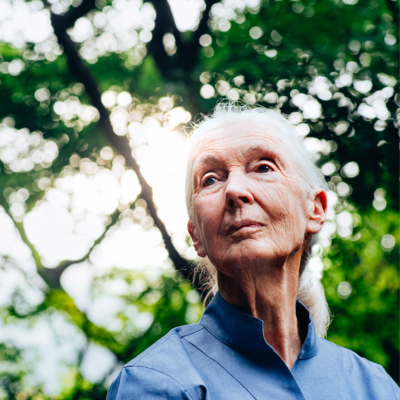
One of the world’s leading conservationists has hailed Dublin company Bewley’s for its role in a global breakthrough in sustainable coffee production.
Bewley’s-backed innovations in Honduras, Central America, will lead coffee’s response to the climate emergency, according to renowned environmentalist Dr Jane Goodall. She says coffee contributes to the destruction of the tropical forest where it is grown and beyond the damage to the ecosystem, farmers are often poorly paid, causing millions to live in poverty.
Now Bewley’s has supported a world-first Integrated Open Canopy (IOC) system, which ensures 50% of a coffee farm consists of conserved or restored forest habitat.It is also backing a project using solar energy and biofuel to dry its coffee – rather than clearing forest for firewood to power industrial coffee dryers.
“I applaud Bewley's for being the leading company supporting sustainable coffee grown using the groundbreaking IOC method,” said Dr Goodall, founder of the Jane Goodall Institute and who found global fame for her work with chimpanzees.This programme, which pioneers IOC and industrial-scale renewable energy in coffee processing, is aiming to set an unprecedented standard for sustainability in coffee worldwide.”
Both Dr Goodall and Bewley’s have endorsed the Mesoamerican Development Institute (MDI) model for sustainable coffee production.It produces Subirana coffee, the product of patented technology designed to reduce greenhouse gas emissions and restore forest habitat and biodiversity.
Bewley’s direct funding and coffee purchases from the Comisyl co-op is enabling investment in IOC farming.
And because growing coffee at high altitudes usually means clearing forest to provide wood for coffee dryers, the Dublin-headquartered company has also backed the Café Solar project for the scale-up of carbon-neutral coffee processing, powered by solar energy and biofuels.
Bewley’s has recently become the first Irish coffee company of scale to achieve B Corp certification, which measures a business’s positive impact on society and the environment.The company introduced the first Fairtrade Certified coffee to Ireland in 1996.
“Bewley’s Subirana coffee points the way to the future for the industry,” said Cathal Murphy, the company’s Head of Innovation and Sustainability.
“This is the first coffee recognised by researchers to go beyond shade canopy to restoring and conserving actual forest habitat on farms.It also eliminates greenhouse gas emissions in drying and milling. It is regenerative and creates an ecological balance inside and outside the farm.The approach has not only increased coffee yields and provided economic opportunities for farmers, but has also played a pivotal role in biodiversity conservation and landscape restoration.There is only one type of sustainability in a supply chain industry – it must be profitable for the farmers, nurture the community and be good for the environment.”
He described anything that does not achieve all three as “an a la carte solution” and consumers need to educate themselves as to the ecological cost of their purchases.
Bewley’s also recently became the first major Irish coffee brand to partner with Café Femenino, championing an initiative which has sparked a rise in women’s incomes and protection in previously male-dominated and impoverished communities.
